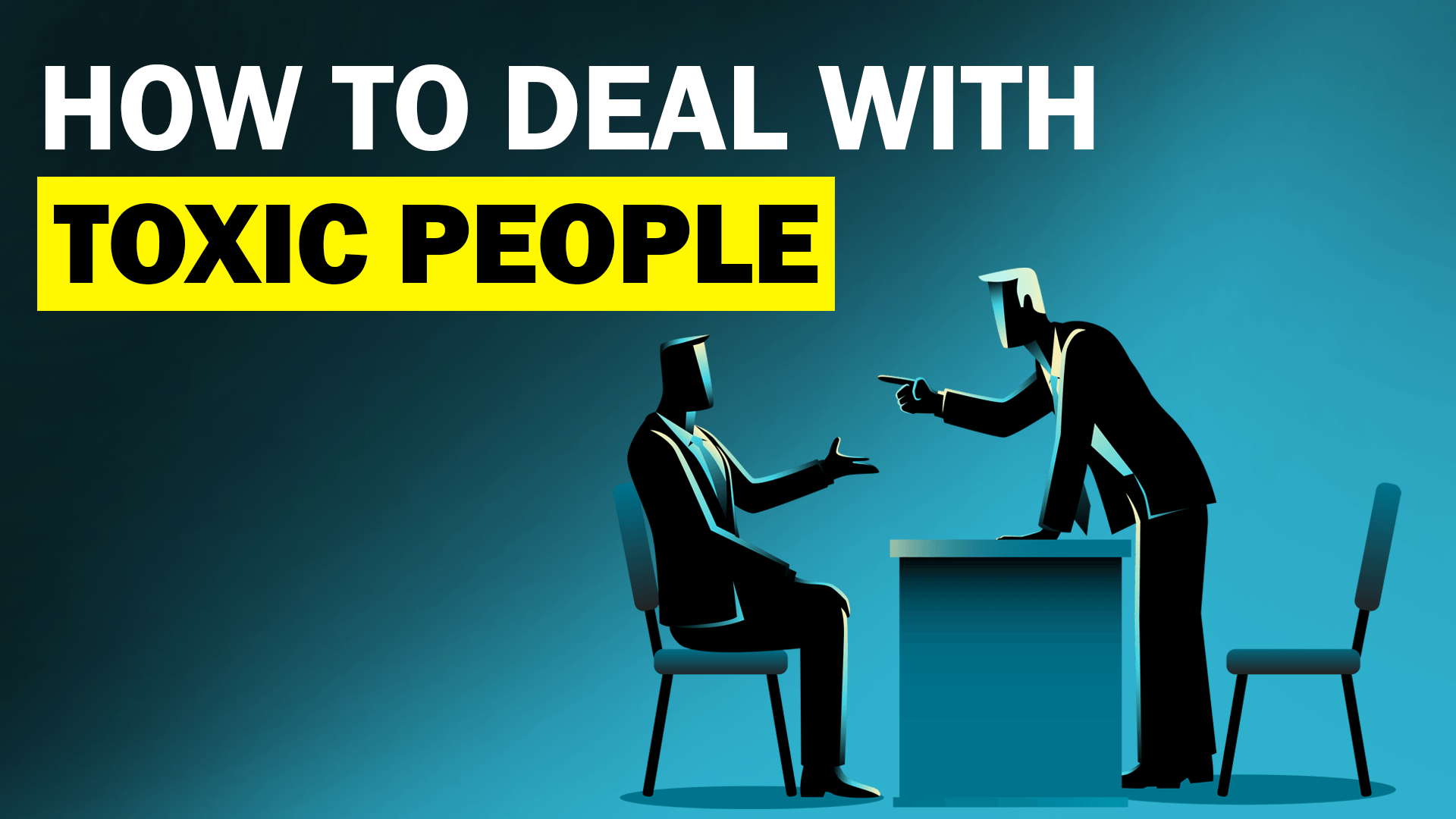There are many toxic people in the world around us, and we may have to interact with them. They might be our bosses, colleagues, relatives, acquaintances, or any other relationship that requires us to engage with them.
What can we do to talk to them without being overwhelmed by frustration?
Here are seven tips to deal with toxic people.
Don’t get abusive.
The first step is to keep your cool. This is not always simple, but it can be important. That way, you won’t give the other person ammunition to use against you and might be able to avoid escalating the conflict.
Even if you feel yourself getting angry, focus on a few key aspects. Don’t yell or raise your voice. Don’t use any insults, threats, or excessively rude language. Otherwise, it will be easier for the person to dismiss what you are saying and play the victim.
Keep this quote in mind – “Do not let the behavior of others destroy your inner peace.”
Prepare your facts before the conversation.
It helps to have your facts straight before starting a conversation. It’s important that you come feeling confident in what you know and what you believe. The other person is, very likely, to act with a great deal of confidence, so it helps to match that. You might need some strong arguments with facts to convince them and to stop them from overpowering you.
Don’t overpraise
Even though you might want to butter the person up a little bit, it’s important to stay firm and avoid giving them too much praise feeding their ego. Doing otherwise might make the other person feel less willing to compromise.
Avoid being false and instead, try to find a detail or a trait that you can complement with authenticity to be diplomatic but don’t force yourself to praise them all the time.
Say no clearly.
A toxic person is naturally disposed to pay less attention to others and also is much more willing to interpret things in a way that suits them. For example, if you say something like “I will think about it” or “Maybe,” they might take it as a yes and later act accordingly.
It’s important that you say no in a clear way, preferably using the word NO in the sentence. A no doesn’t have to be a bad word, especially if you say it in a polite, calm tone.
Document if possible
Another useful tip, especially in the workplace, is to document any important conversations. You might send text messages or emails to support what was discussed verbally. Write down what you talked about and make sure there is a record of the messages you need to make sure they know.
This will provide a record not just to show to third parties but also for you. Additionally, you can have important conversations in the presence of other peoples, if possible.
Having others as a backup can make you feel more confident in future discussions or conflicts.
Create rapport.
Something that can help you is to try to create some rapport. Try an icebreaker or find a topic that you have in common with the person. Start the conversation by being friendly and polite. This can help you set the tone for the talk and make the other person relax a little, becoming a bit more willing to hear your point of view.
While many toxic people can be quite frustrating but assume that they will be reasonable and pleasant, starting with this tone can make the discussion more polite on both sides.
Although it does not always work as intended, but it’s worth a try.
Set your priorities.
You might want to overrule them in many of their suggestions or call them out on a lot of their words; however, it might be more productive to restrain that impulse. A toxic person wants to get things their way, and you might let them as much as you can.
Focus your energies on the things that truly matter, and let them have the things that matter less. For instance, you might agree to some cosmetic changes but not to something that deeply changes the nature of a task. Don’t waste your energy and capital on every little thing.
“Negativity will distract you from your goals, so don’t entertain it.”



